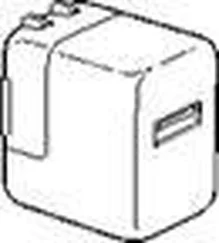But first, go back to Adam Smith's pin, the implement from which he derived his theories of productivity, division of labour, transition costs (money wasted by workers moving from one place to another) – the fundamentals he explored in order to write An Inquiry into the Nature and Causes of the Wealth of Nations , published in 1776. Since that time, production has changed, capital has changed, capitalists have changed, workers have changed, markets have changed; even Smith isn't quite the efficiency-driven automaton his neoclassical disciples make him out to be: he worried about what would happen to the human spirit if you just sat making the same bit of a pin for your entire working life. But Chang doesn't try to dragoon the fathers of the free market into arguments for its opposite. Rather, he opens with the point that all thinkers are of their time, and to apply their ideas "fruitfully, we require a good knowledge of the technological and institutional forces that characterise the particular markets, industries and countries that we are trying to analyse with the help of the theory". This is the first body blow to economics as a science; never mind the competing theories, each theory has more complexity in its incipience than its followers will usually allow because they are following it as part of a wider political purpose.
The chapter "How Have We Got Here?" rattles through centuries, dividing the history of the developed world into different eras: the industrial revolution, High Noon (1870 to 1913), the Turmoil (1914 to 1945), the Golden Age (1945 to 1973), the Interregnum (1973 to 1979), then 1980 to the present. This is a fascinating, hurtling explanation of everything, taking in growth (painfully slow for the first few centuries); the conditions for successful free trade (and what free actually means – usually "raked towards the strongest"); the inevitability of some kind of first world war (since the growth of the period preceding it was based on imperialism, not production); and what the Great Depression did for thought and for policy. What did high unemployment mean? What are the Bretton Woods institutions, and why were they founded? What are the successes of free trade and the free market, and what are their limitations? Why is liberal such a confusing word? What actually happened to the Soviet countries at the end of the regime? From the small hillock of the unpacked acronym to the mighty glacier of some accepted evil such as protectionism, from the things you didn't realise you didn't know to the things you would never be seen dead admitting you didn't understand … Chang maps the territory legibly, but more: he turns it into terrain that you enjoy exploring.
I think his favourite section is "Let a Hundred Flowers Bloom" – to judge, anyway, from his endearing pick'n'mix approach, in which he describes the nine key schools of thought, then makes up fresh labels, which you can use, if you wish, to describe yourself. The author's references from culture proliferate: perhaps the best example is when he tries to explain, later, that the market isn't logical, any more than is any other human behaviour, and that the things we can trade on the open market (carbon usage) and can't (people, organs) come from beliefs, impulses and feelings that are deeper than money. "So politics is creating, shaping and reshaping markets before any transaction can begin. It is like the 'Deeper Magic' that had existed before the dawn of time, which is known to Aslan (the lion) but not to the White Witch in The Lion, the Witch and the Wardrobe ." This is a man, I thought, who doesn't let up with the economics even when he is reading a bedtime story. I bet he could come up with some pretty good stuff on tax havens from Harry Potter.
Those nine schools are Austrian, Behaviourist, Classical, Developmentalist, Institutionalist, Keynesian, Marxist, Neoclassical and Schumpeterian. At the end of the chapter, he devises a handy chart; if you like your economy divided into classes, and think its most important domain is production, yet at the same time think the world is complex and uncertain and economies change through technological innovation (rather than, say, exchange or consumption or production), then you are a Marxist/Keynesian/Schumpeterian (you may have Behaviourist properties: I know I do). His ideal is that we recognise that none of these ideas is sacred, but nor is any worthless; hence the insistence that you can pick and choose from each, which may look like fun acronymising to the layperson but is, one would imagine, quite heretical, both to economists (many of whom are so used to accepting the neoclassical way) and to an academic framework that generally searches for a purity of ideas, rather than the muddy acceptance that everybody is right sometimes.
I found some ideas rang out immediately, and knocked around my head for days; one of the flaws in neoclassical economics is that they see everyone as a consumer (occasionally we might be a buyer or seller). Other schools put the onus on our identities as workers and put the spotlight on what an economy produces. The modern understanding of economies as giant shops and people as just wallets is so empty. As modish as it is to look for answers beyond numbers – in yoga or whatever – it is also a profound relief to find economic explanations and hypotheses that reject the human-as-consumer, too. Besides, you don't hear often enough the fact that for many work is not merely a pain (or a disutility) but a cornerstone of their lives: not just skilled work, all work. Other ideas – why government transfers are counted out of GDP, what proportion of corporate profits is invested in research and development – will only leave their outline in my head, and I'll be looking up the details for ever.
You could use it as a primer, a reference book, a brief history; it is all these things, but isn't contained by them. It reflects the urgent generosity of a thinker whose depth of understanding is matched by a desire to see us all understand. Ha-Joon Chang is himself the walking disproof of the neoclassical individual, the perfectly rational, perfectly selfish consumer; his wealth is in his knowledge, perceptiveness, insight and vision. And he can't give it away fast enough. It flies off him like the seeds of a dandelion.
Copyright © 2014 by Ha-Joon Chang
All rights reserved. You may not copy, distribute, transmit, reproduce, or otherwise make available this publication (or any part of it) in any form, or by any means (including without limitation electronic, digital, optical, mechanical, photocopying, printing, recording, or otherwise), without the prior written permission of the publisher. Any person who does any unauthorized act in relation to this publication may be liable to criminal prosecution and civil claims for damages. For information address Bloomsbury USA, 1385 Broadway, New York, NY 10018.
Every reasonable effort has been made to trace copyright holders of material reproduced in this book, but if any have been inadvertently overlooked the publishers would be glad to hear from them.
Published by Bloomsbury Press, New York
Bloomsbury is a trademark of Bloomsbury Publishing Plc
LIBRARY OF CONGRESS CATALOGING-IN-PUBLICATION DATA HAS BEEN APPLIED FOR
eISBN: 978-1-62040-813-1
First published in Great Britain in 2014
First U.S. Edition 2014
This electronic edition published in August 2014
Visit www.bloomsbury.com to find out more about our authors and their books.
You will find extracts, author interviews, and author events and you can sign up for newsletters to be the first to hear about our latest releases and special offers.
1 This curious state of affairs is only partly explained by the fact that economic issues lack the visceral appeals that things like love, dislocation, death and war have. It exists mainly because, especially in the last few decades, people have been led to believe that, like physics or chemistry, economics is a ‘science’, in which there is only one correct answer to everything; thus non-experts should simply accept the ‘professional consensus’ and stop thinking about it. Gregory Mankiw, the Harvard economics professor and the author of one of the most popular economics textbooks, says: ‘Economists like to strike the pose of a scientist. I know, because I often do it myself. When I teach undergraduates, I very consciously describe the field of economics as a science, so no student would start the course thinking he was embarking on some squishy academic endeavor.’ [1] 1. These are the first sentences of his article ‘The macroeconomist as scientist and engineer’, Journal of Economic Perspectives , vol. 20, no. 4 (2006). As it will become clearer throughout the book, however, economics can never be a science in the sense that physics or chemistry is. There are many different types of economic theory, each emphasizing different aspects of complex reality, making different moral and political value judgements and drawing different conclusions. Moreover, economic theories constantly fail to predict real-world developments even in areas on which they focus, not least because human beings have their own free will, unlike chemical molecules or physical objects. [2] 2. For a similar view, see the article, ‘Is economics a science?’ by Robert Shiller, one of the 2013 Nobel Economics laureates. The article can be downloaded at: http://www.theguardian.com/business/economics-blog/2013/nov/06/is-economics-a-science-robert-shiller. If there is no one right answer in economics, then we cannot leave it to the experts alone. This means that every responsible citizen needs to learn some economics. By this I don’t mean picking up a thick textbook and absorbing one particular economic point of view. What is needed is to learn economics in such a way that one becomes aware of different types of economic arguments and develops the critical faculty to judge which argument makes most sense in a given economic circumstance and in light of which moral values and political goals (note that I am not saying ‘which argument is correct’). This requires a book that discusses economics in a way that has not been tried, which I believe this book does.
Читать дальше












